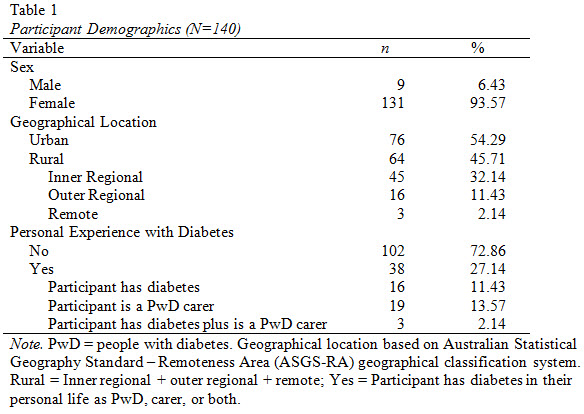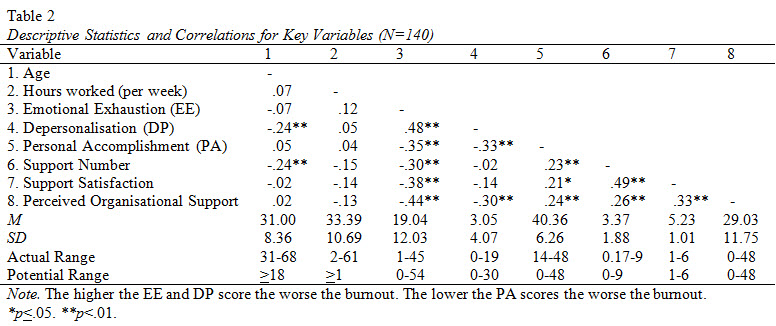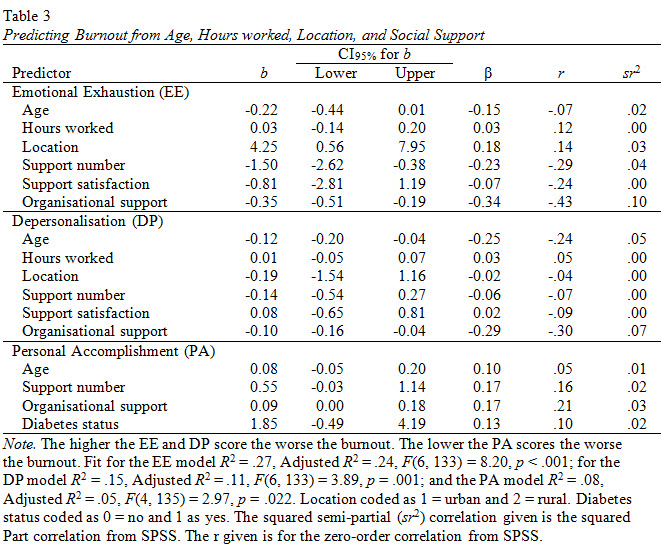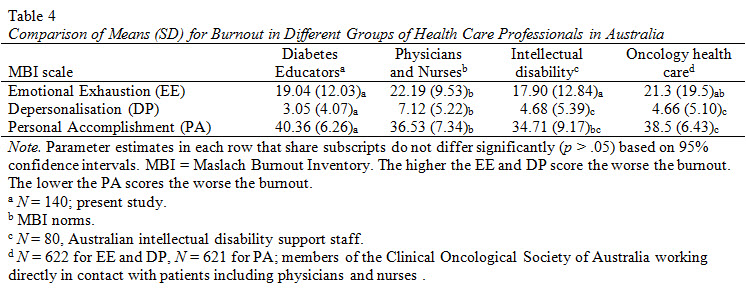Poster Presentation Australian Diabetes Society and the Australian Diabetes Educators Association Annual Scientific Meeting 2016
A Burning Issue – Exploring Burnout in Australian Diabetes Educators (#383)
Burnout, a syndrome of emotional exhaustion (EE), depersonalisation (DP) and reduced personal accomplishment (PA), is characterised by a lack of enthusiasm and motivation, feelings of ineffectiveness and frustration resulting in reduced workplace efficacy. This pioneer study of Australian Diabetes Educators (DEs) examined the incidence of burnout and influence of predictors including support, hours worked, geographical location, age and personal diabetes experience.
140 DEs (131 females) aged 31-68yrs (M=50.09, SD=8.43) working 2-61hrs/week (M=33.39hrs/week) volunteered. Participants completed self-report measures of burnout, social support, organisational support and demographics (Table 1).

Results suggest increased burnout is associated with reduced social and organisation support and lower age but not hours worked (Table 2). Of the DEs in the present sample 27.9% had high levels of EE, 5.0% had high levels of DP, and 10.0% had low levels of PA. Medium burnout levels of EE were experienced by 20.7%, DP by 10.0%, and PA by 16.4% of respondents respectively.

There was strong overall prediction of EE with about 24% of the variance explained. The strongest predictors of increased EE were lower age, rural location, smaller support networks and low organisation support (Table 3). Overall prediction of DP was 15% of the variance explained with lower age and lower organisational support contributing strongly to DP. The overall model for PA explained 5% of the variance. Lower PA was mainly predicted by lower organisation support, smaller support networks, lower age and no personal diabetes experience.

Australian DEs sampled experienced lower burnout rates than the average US medical community but similar burnout levels as other Australian healthcare professionals (Table 4).

Overall, findings suggest that social and organisational support interventions may be useful additions to interventions that target burnout, overall work engagement and psychological health in Australian DEs.